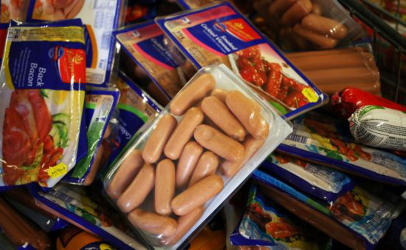
The world’s worst listeriosis outbreak is likely to cost Tiger Brands more than financial markets were expecting. And the party coming up with the higher tally is Tiger Brands itself.
As a publicly traded company on the Johannesburg Stock Exchange, Tiger Brands is providing financial markets with the company’s own estimates. The $2.5 billion South African food business says the ongoing listeriosis outbreak could cost the company 800 million Rand, or more than $67.5 million.
On March 4 South Africa’s Minister of Health named Tiger’s Enterprise Foods polony production facility in Polokwane as the source of the outbreak strain responsible for 183 deaths and nearly 1,000 illnesses. Tiger Brands shut down that facility along with three others in Germiston, Pretoria and Clayville.
Those operational suspensions, along with the destruction of recalled products and raw materials, will likely cost Tiger Brands between 337 million Rand and 377 million Rand or $28-32 million.
Tiger Brands is also anticipating costs from lawsuits brought by both those who survived bouts of listeriosis and by those who did not. It expects two class actions are likely to win court approval. The first would be for individuals sickened with Listeria infections from Tiger products since May 2017. The second would be for people who lost a family member to the outbreak.
The cost estimates, provided to financial markets, analysts, and others may be a sign Tiger Brands has a late date with reality. After the cause of the outbreak was laid on its doorstep, informed observers said the company made some mistakes.
It was slow to respond, did not seem very engaged, and didn’t show any compassion for the victims, according to Ilse Struweg, associate professor of marketing management at the University of Johannesburg. Writing on The Conversation, Struweg said Tiger Brands “will have to embark on a serious brand rehab.”
“Tiger Brands will be remembered for trying to deny responsibility and refusing to apologize,” she wrote.
Tiger Brands CEO Lawrence MacDougall is responsible for those early mistakes. He did not acknowledge the company could be directly linked to the listeriosis until March 19 or two weeks after the government’s finding.
MacDougall now stays Tiger Brands is “dealing with a national crisis” and promises that if there’s a “tangible link” between their products and the listeriosis, they will address “any valid claims made against it in due course.”
The second and smaller company implicated in the outbreak is pursuing other tactics.
RCL Foods, mostly owned by an investment holding company, claims its “operations have been cleared of any listeriosis outbreak” because an un-named laboratory in France failed to find ST6, the outbreak strain of Listeria monocytogenes, in environmental samples from its Wolwehoek plant.
Dr. Aaron Motsoaledi, South Africa’s Minister of Health, said the listeria in RCL post-production areas is a “risk for product contamination.” SA’s Health Department took 201 environmental samples from the RCL plant, and 28 of them, or 14 percent, were positive for Listeria monocytogenes. Results for whole genome sequencing tests are not yet available.
(To sign up for a free subscription to Food Safety News, click here.)
